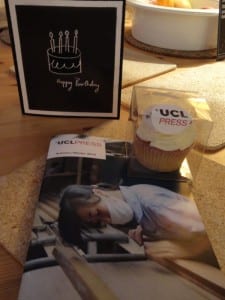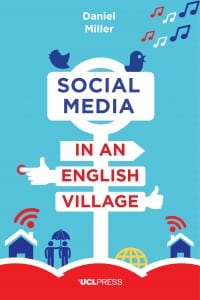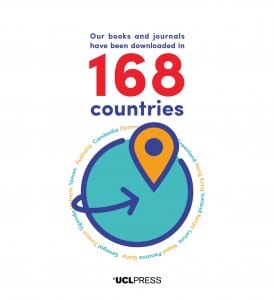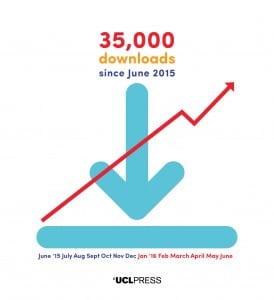Futures of academic publishing
By Alison Fox, on 5 June 2018
Today’s guest post is by Ilan Kelman, from UCL’s Institute for Global Health and Institute for Risk & Disaster Reduction, editor of Arcticness: Power and Voice from the North, and is part of a special series to celebrate UCL Press reaching one million downloads.
Are the days over of roaming the dusty library shelves for sombre articles by world-renowned-but-never-seen scientific figures? Now, you can sit over ten kilometres up on an intercontinental flight downloading PDFs. Or seek the face of a prominent name through an image search or watching them lecture online.
No more must you queue at conferences to harangue them. On the same flight, or from your phone at home, drop them an email or social media message and skype across time zones.
Then, login to google docs from different hemispheres to co-author in real-time. Or use track changes and comments to edit with colleagues whom you have never met or spoken to.
Academic publishing is changing. New media and new ways of accessing media permeate science. With publishers, we can and should explore what could work or fall flat–while never diminishing world-renowned, cutting-edge, innovative science.
UCL Press already pursues personalisable and interactive PDFs. Images have long been part of manuscripts. Electronic publishing permits audio clips, videos, spreadsheets, GIS files, and other formats as embedded or supplementary material.
Patents and legislation are publication formats which academics can write and which are effectively peer-reviewed. Fine and performing arts accept non-written forms for academic credit, whether a composition, a performance, a painting, or a sculpture.
All disciplines should adopt similar approaches and beyond. Rather than being within, or supplemental to, a publication, different forms and formats could be the peer-reviewed academic publication.
A five-minute video of original choreography could express the islandness and urbanity of London or Bangkok as island cities. A dynamic holograph could illustrate decision-making under climate change. A computer programme could provide an online display which automatically collects, processes, and analyses real-time air pollution data.
Any such submission would have to be rigorously peer reviewed, as with papers, chapters, and books. The review process might require as much creativity and open-mindedness as the piece under review.
Other options require careful thought and implementation. Could material submitted for peer review, and peer-review processes, be crowdsourced with anyone contributing, as with wikis? Determining authorship could be challenging, but perhaps no more so than a paper for which the list of 5,154 authors is longer than the manuscript.
With a New Zealand river being granted some legal rights similar to human beings, could environmental features or processes be scientific co-authors? Isaac Asimov’s fiction writings set the stage for robots and other machines to be considered as peer-reviewed outputs and/or authors on them.
Nothing here mean eschewing the lengthy, erudite article or book with humdrum section headings. Nothing here means dismantling libraries or recycling the paper-based journals. It simply means different approaches, forms, and formats complementing and supplementing, not displacing, long-accepted scientific publication outputs.
We must continue standard approaches. We must also embrace and create futures of academic publishing without compromising scientific quality.
We can be creative, innovative, modern, and engaging without losing the positive aspects of what we have. All futures bring forward needed elements of the past.
 Close
Close













